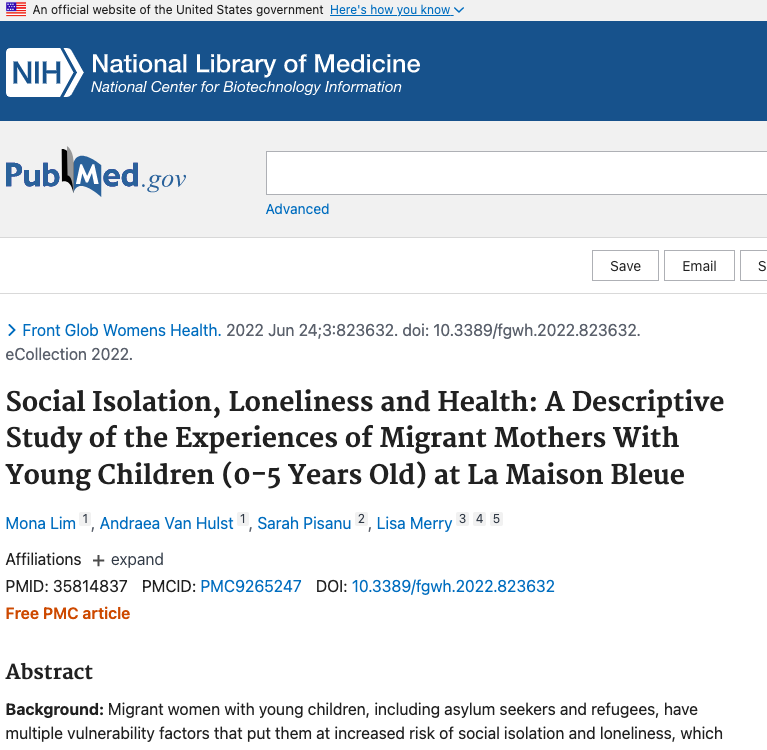Social Isolation, Loneliness and Health: A Descriptive Study of the Experiences of Migrant Mothers With Young Children (0–5 Years Old) at La Maison Bleue
Abstract
Background: Migrant women with young children, including asylum seekers and refugees, have multiple vulnerability factors that put them at increased risk of social isolation and loneliness, which are associated with negative health outcomes. This study explored the experiences of social isolation and loneliness among migrant mothers with children aged 0-5 years as well as their perceptions on possible health impacts.
Methods: A qualitative descriptive study was conducted at La Maison Bleue, a non-profit organization providing perinatal health and social services to vulnerable women in Montreal, Canada. Recruitment and data collection occurred concurrently during the COVID-19 pandemic, between November and December 2020. Eleven women participated in individual semi-structured interviews and provided socio-demographic information. Interview data were thematically analyzed.
Results: Migrant women in this study described social isolation as the loss of family support and of their familiar social/cultural networks, and loneliness as the feelings of aloneness that stemmed from being a mother in a new country with limited support. Multiple factors contributed to women’s and children’s social isolation and loneliness, including migration status, socioeconomic circumstances, language barriers, and being a single mother. Women expressed that the COVID-19 pandemic exacerbated pre-existing experiences of social isolation and loneliness. Mothers’ experiences affected their emotional and mental health, while for children, it reduced their social opportunities outside the home, especially if not attending childcare. However, the extent to which mothers’ experiences of social isolation and loneliness influenced the health and development of their children, was less clear.
Conclusion: Migrant mothers’ experiences of social isolation and loneliness are intricately linked to their status as migrants and mothers. Going forward, it is critical to better document pandemic and post-pandemic consequences of social isolation and loneliness on young children of migrant families. Supportive interventions for migrant mothers and their young children should not only target social isolation but should also consider mothers’ feelings of loneliness and foster social connectedness and belongingness. To address social isolation and loneliness, interventions at the individual, community and policy levels are needed.
Keywords: COVID-19; early childhood; loneliness; migrant mothers; social isolation.

